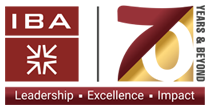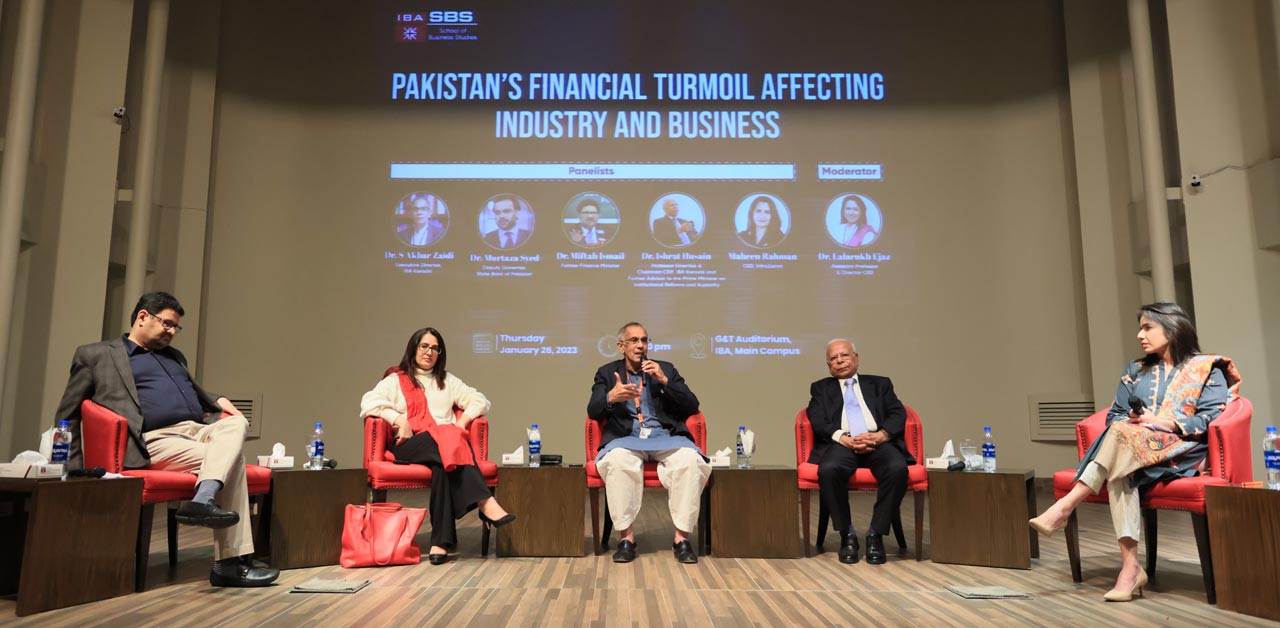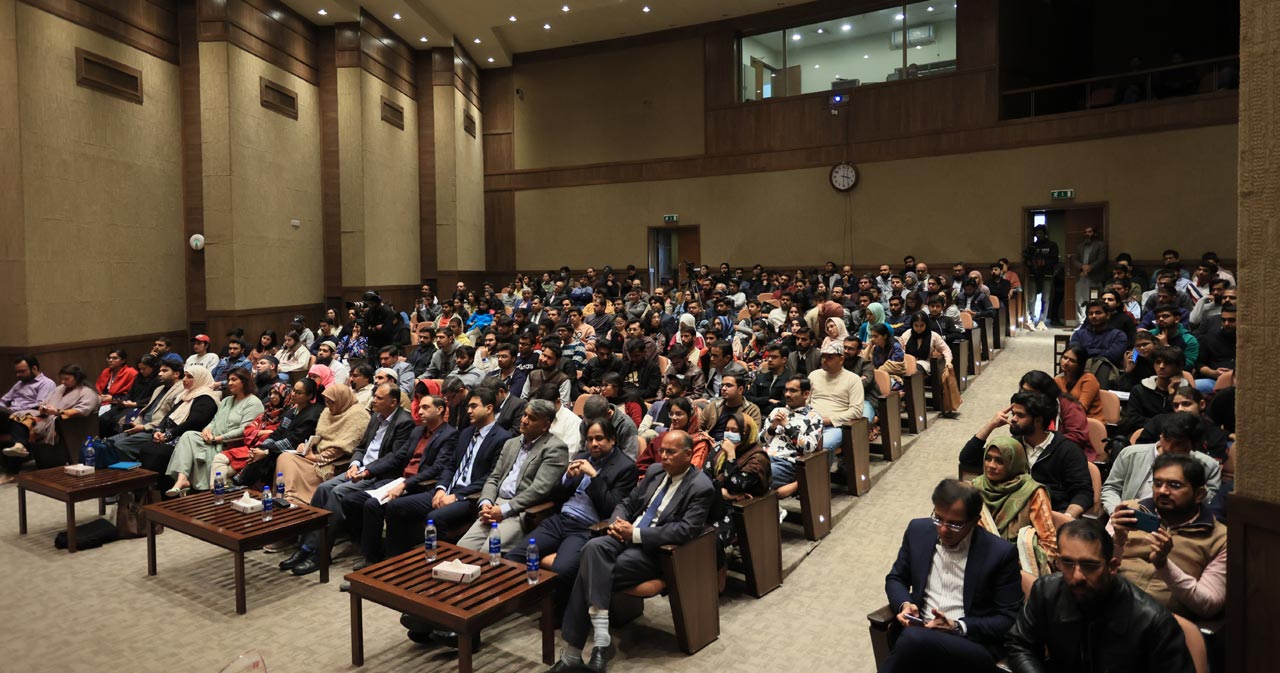School of Business Studies, IBA Karachi organized a panel discussion on 'Pakistan's Financial Turmoil Affecting Industry and Business'
January 26, 2023:School of Business Studies (SBS), Institute of Business Administration (IBA), Karachi organized a panel discussion on 'Pakistan's Financial Turmoil Affecting Industry and Business' featuring eminent panelists. The lecture was attended by faculty, students, media and members of the public.
Panelists included Dr. S Akbar Zaidi, Executive Director, IBA; Dr. Miftah Ismail, former Finance Minister; Dr. Ishrat Husain, Professor Emeritus & Chairman CEIF, IBA & former Advisor to the Prime Minister on Institutional Reforms and Austerity; and Ms. Maheen Rahman, CEO, InfraZamin Pakistan. The session was moderated by Dr. Lalarukh Ejaz, Assistant Professor and Director, CED, IBA.
The session commenced with Dr. Ejaz introducing the distinguished panelists and was carried forward by Dr. Abdullah Zafar Sheikh, Professor and Dean School of Business Studies (SBS). Dr. Sheikh said a few words on Pakistan's current economic scenario and the gravity of the situation.
Addressing the pertinent topic, Dr. Zaidi said, "Financial turmoil has created a sense of an overall turmoil. There is an uncertainty about what will happen tomorrow. Decisions concerning imports, exports and investments are all in a limbo. Usually, countries supported through International Monetary Fund (IMF) programs do not default. Having said that, I do not think Pakistan will default but yes as far as businessmen and policy makers are concerned, all are uncertain about the future."
Dr. Ismail said that there is security in being on an IMF program and therefore Pakistan should collaborate with IMF. He said, "Instead of depreciating the value of the dollar against the rupee, there is a need to increase exports. Also, we should work towards making the economy stronger so that foreign investments trickle in." Dr. Ismail mentioned the uncertainty of Pakistan's economy and focused on growth learning. He expressed hope for a great future and narrated examples of Bangladesh and Sri Lanka's economic crises and their efforts to diminish it.
Dr. Husain opined that Pakistan's financial woes are not recent and they reflect the cumulative wrong decisions made in the past. He said, "To counter these problems, we needed to invest in basic industries catering to our consumers' needs. We need to support manufacturing industries and support private industries to stabilize the economy. We are also not utilizing our agricultural sector although we are an agrarian country".
Ms. Rahman said that the balance between our exports and imports is unbalanced. She said, "A World Bank study has shown that Pakistan's capability of generating renewable energy is exceptional, but we need to have proper policies in place to capitalize this potential. She further added that we can be importers of foods to generate revenue and that we should be food exporters not importers. The private sector can also play an important role in stabilizing the economy and should step up to the challenge."
The panelists cumulatively shared their expertise and suggested solutions towards the country's better future. The discussion revolved around exports and imports, privatization and nationalization, education and research, system and government, technology and growth. The forum concluded with the panelists agreeing upon the government needing to formulate and implement strategic policies to overcome the shortcomings in the system.
An engaging Q&A session ensued.
Dr. Sheikh concluded the session by highlighting the key points from the discourse.


